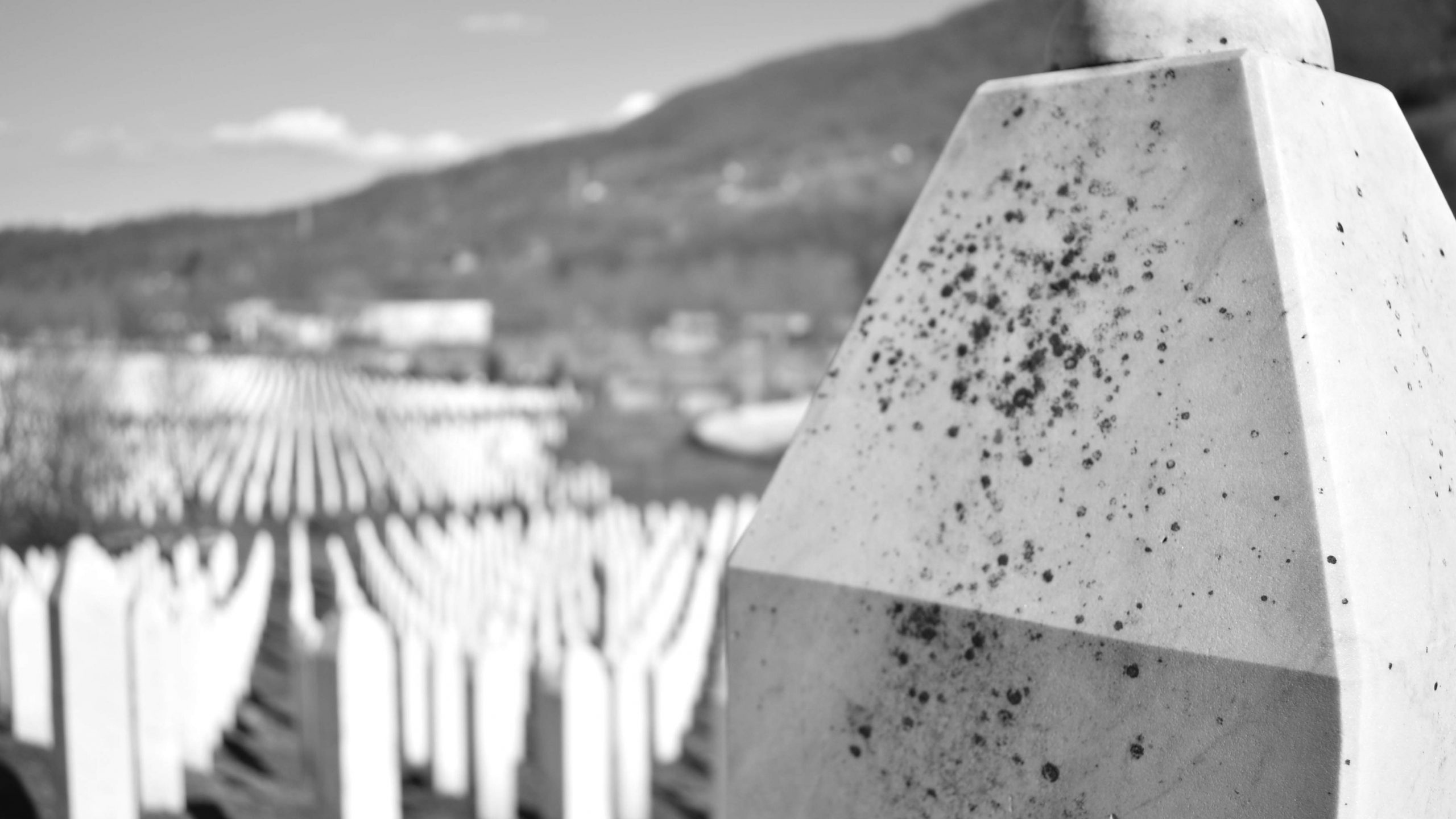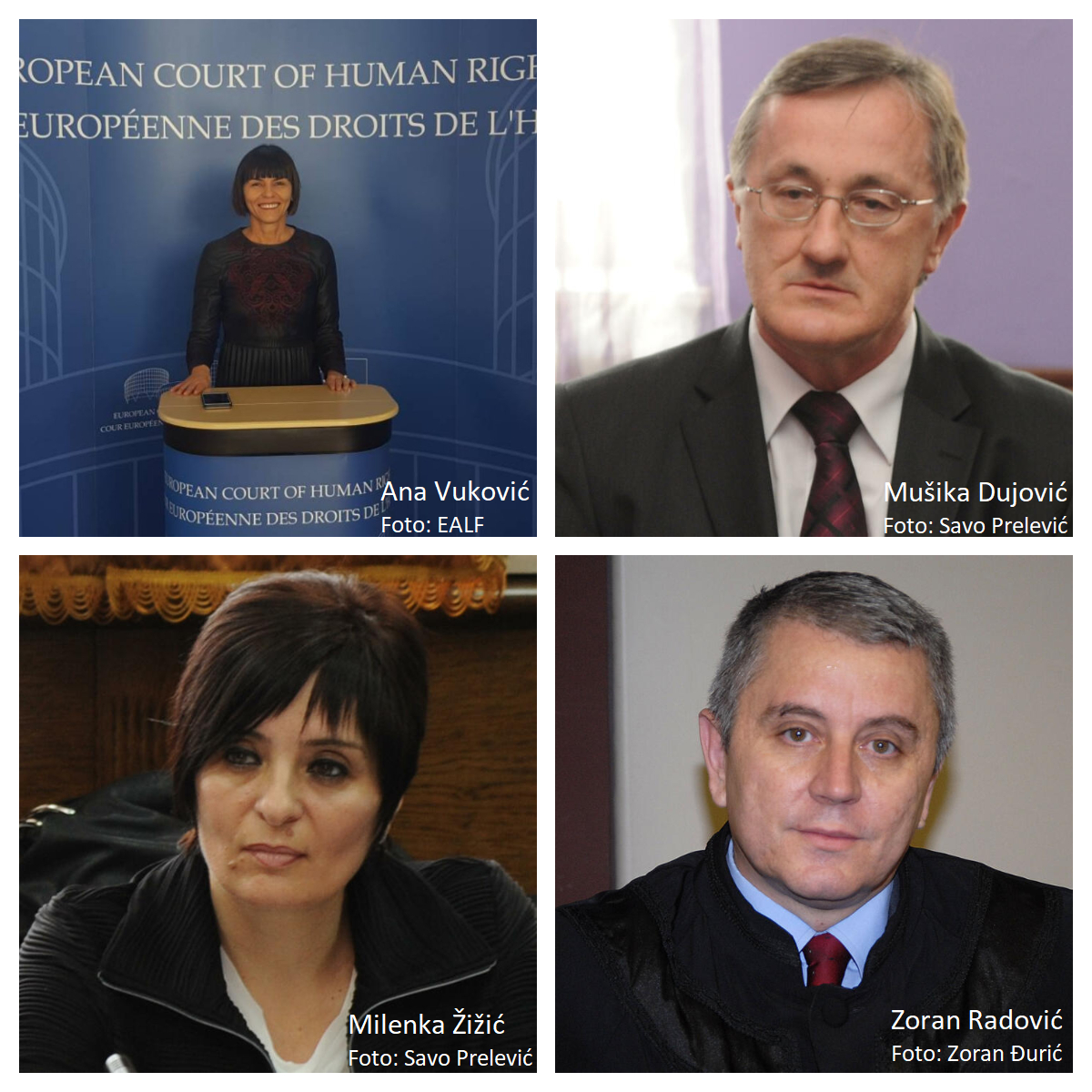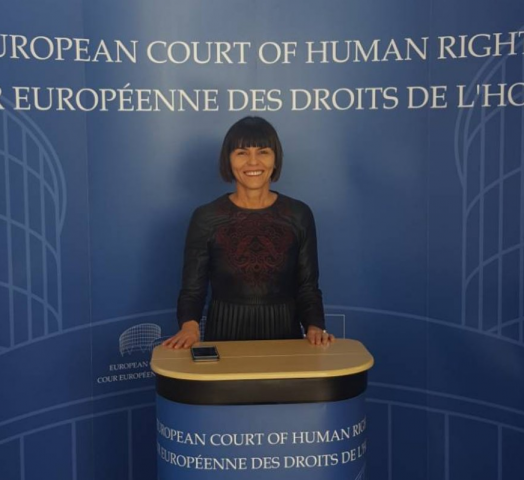
11 NGOs: ADOPTION OF RESOLUTION ON SREBRENICA AND DISMISSAL OF MINISTER LEPOSAVIĆ A GREAT STEP FOR MONTENEGRO AND THE REGION
18/06/2021
IN EXPECTATION OF TOMORROW’S SUPREME COURT JUDGES’ INTERVIEWS WITH CANDIDATES FOR THE PRESIDENT OF THAT COURT
22/06/2021THE ELECTION OF ANA VUKOVIĆ AS PRESIDENT OF THE SUPREME COURT WOULD REPRESENT A HISTORICAL CHANCE FOR THE INDEPENDENCE OF THE JUDICIARY AND COMPENSATION FOR TIME THAT WAS LOST ON THE PATH TO THE EUROPEAN UNION

Foto: EALF
The European Association for Law and Finance (EALF), ADAMAS, ANIMA – Centre for Women’s and Peace Education, Human Rights Action (HRA), Centre for Women’s Rights (CŽP), Centre for Investigative Journalism (CIN), Committee of Young Lawyers of the Association of Lawyers of Montenegro, Prima, Safe House for Women [Sigurna ženska kuća], Spektra and Alliance of Youth Workers welcome the candidacy of the judge of the High Court in Podgorica, Ana Vuković, for the position of President of the Supreme Court of Montenegro, and believe that her election would enable Montenegro to get a President of the Supreme Court of the highest reputation and exceptional professional and moral qualities. She meets all the requirements and has all the qualities to head the highest court in Montenegro and implement the necessary reforms.
Judge Vuković meets both the criteria prescribed by domestic law for the President of the Supreme Court and the international standards of what a person in that position should represent in terms of proven impartiality and exceptional expertise. Judge Vuković has demonstrated her impartiality and commitment to the rule of law in her judicial practice, as she was among the first to apply international human rights standards and was willing to publicly criticise the inadequate actions of state authorities and government representatives.
Especially worth mentioning is the investigation that Judge Vuković has led in the case of the Moldavian woman S.Č, the injured party in the case of human trafficking and mediation in prostitution in Montenegro. According to experts, this investigation was conducted “under extremely difficult conditions, both from the practical and legal point of view” and was positively evaluated by the expert mission of the Council of Europe and the OSCE in the report published on 23 September 2003. This was followed by a brave public statement in which she expressed her disagreement with the prosecutor’s decision to refuse to file an indictment in said case. This action of the prosecutor was later criticised also by the experts of the Council of Europe and the OSCE. In 2017, in the reasoning of the judgment in the “Ramada” case, in which the then Director of the Railway Directorate Nebojša Obradović was convicted of abuse of official position, Judge Vuković established that the then Speaker of the Parliament of Montenegro and President of the Social Democrats of Montenegro (SD) Ivan Brajović and other members of the SD were familiar with the fact that controversial meetings were being organised at the “Ramada” hotel and that they testified “in a biased fashion intended to help the accused”. By doing this, she indicated to the prosecution that they should have done more to establish who was responsible for breaking the law in that case.
Her judgment in the 2019 human trafficking case, in which she sentenced the defendants to lengthy prison sentences of 17 and 14 years, was the first conviction for that crime after a period of five years. This judgment was mentioned in the State Department’s 2020 report on human trafficking in Montenegro as an indicator of the state’s progress.
Law students and young lawyers who have followed her trials share the impression that she is a judge who acts authoritatively, lawfully and fairly, and that she represents – in the best way possible – all that a court should be and which, in practice, should be present in all the courtrooms of Montenegro. Generations of young lawyers often compare Judge Vuković with the famous US Supreme Court judge Ruth Bader Ginsburg, who was a tireless and determined fighter for justice who left an impressive legal legacy.
With her work as a judge, and being independent from any government, Judge Vuković has shown that she is worthy of the position of President of the Supreme Court and that she could implement the necessary reforms in the judiciary to the benefit of all citizens. We recall that in its latest report on Montenegro, the European Commission has stated that the overall progress of Montenegro in the accession negotiations depends on strengthening the independence and professionalism of the judiciary, its accountability and efficiency, as well as trust in judicial statistics. Therefore, the election of a responsible person at the head of the Supreme Court Montenegro – who also happens to be an ex officio member of the Judicial Council – is of great importance for the judiciary and society as a whole.







 English
English